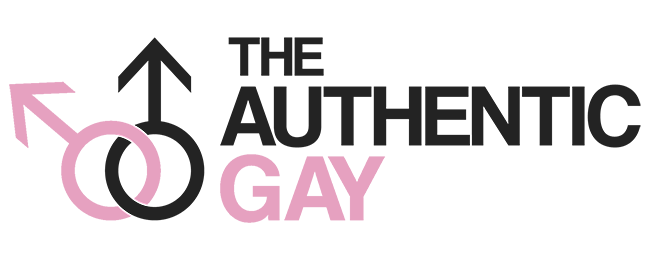Have Gay Dating Apps Changed How We Talk To Each Other?
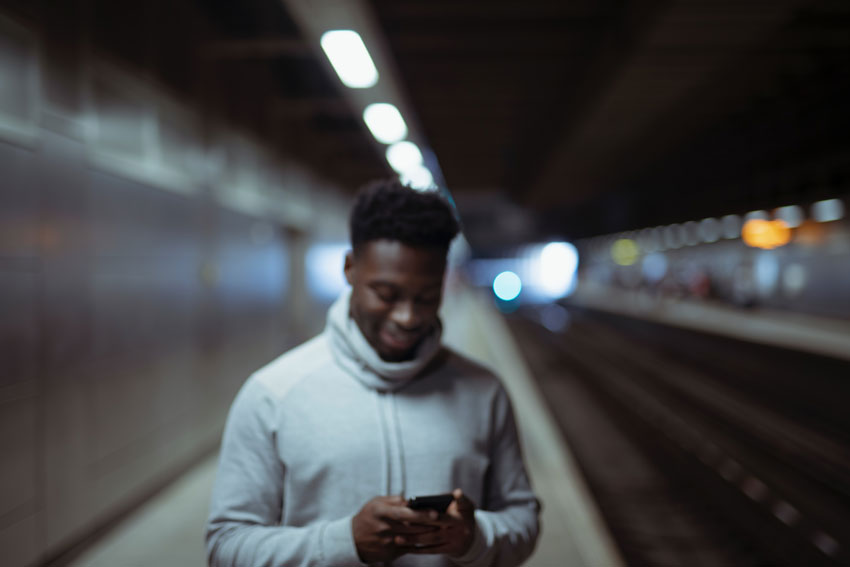
Picture it: you’re at your local gay watering hole and see an insanely attractive guy. After a fair amount of soul searching you muster up the courage to walk up to him. You lean in and smile. Before you can manage a “Hello” he yells, “Show me your dick.” Sure, that could be hot but it’s not exactly respectful. Certainly not called for. And yet, that type of verbal exchange is the norm within our current gay app culture. We write it off as, “But it’s Grindr.” But creating separate rules for online vs. real life gives a weird visa that allows for casual racism, sexual harassment, and bullying. And it begs the question whether the social shorthand we’ve adopted for apps is bleeding into the real world. And given everything we deal with as queer people, do we need more bullshit in our lives?
Anonymity or Empowerment?
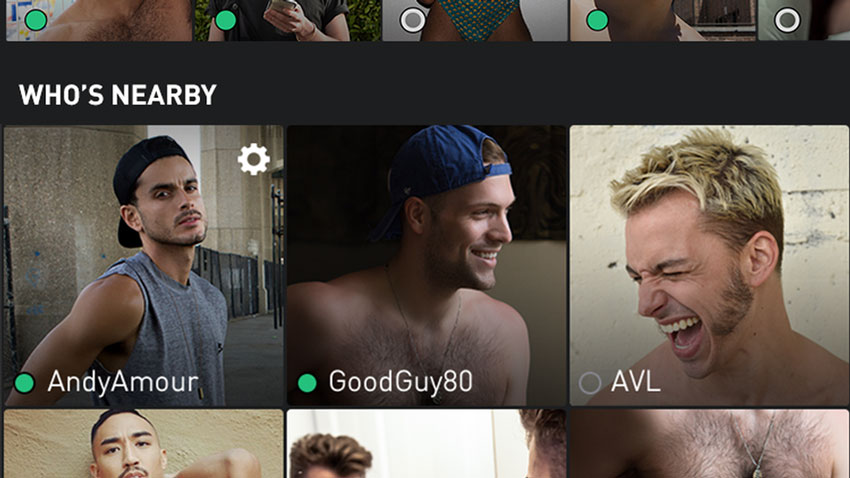
App culture has allowed for anonymity. Men can hide behind torso photos or sunglasses and honor their inner introvert. We can cherry-pick our social interactions. Rather than navigating a group of people at a bar or social outing, you cut to the chase and circumvent small talk. Are you interested? Looking? Next. Next. Do you want to have sex? Next. I’m not into you! Block. The anonymity of online culture has given us a great amount of freedom. We can be bolder and more authentic. We can take wide swings with first lines and conversation topics and not risk the crippling rejection we’d experience in real life. We can go outside of our comfort zone and really make a wholehearted attempt to get to know someone we are attracted to.
The freedom of apps has certainly helped us on an individual level. We’ve gotten laid. We’ve met more people. We’ve felt safer being able to locate gay people in the most remote of areas we might travel to or visit. However, this nonetheless results in more and more people spending time at bars staring at their phones. They’re looking for better guys not realizing those hotties are the reality-bending photos of the same guys next to them in the bar. It’s become so easy to block people or move onto the next conversation on an app that many gays have forgotten object permanence. Guys do continue to exist after you’re done talking to them, sleeping with them, or engaging with them. And that same guy can be someone you hit on a year later, or is a friend of your friend, or is the guy running your next job interview.
Plus, we’ve abandoned social grace. I was at a bar talking to a friend. A guy walks up to me and says, “Tell me where you got that shirt.” This was without a hello or an introduction. I did not know this person. The statement was not a compliment, a polite request, or even small talk. It may seem “too sensitive” to even care. But here’s someone, a total stranger, not kindly asking for my time, energy, and attention. They are telling me to give it to them. I stopped him and said, “Hello, my name is Christian. Let’s try that again like you have manners.” He complied and then explained, “Oh I worked for a company that had a similar design. And I liked your shirt.”
If you are keeping track at home…there was a compliment in there. And yet, I am expected to do all the heavy lifting in the conversation and give a total stranger with a mildly rude temperament the benefit of the doubt. Let’s be real – gay men know how to give compliments, albeit we are rather stingy in handing them out. We lavish attention on straight men and women and dogs. And yet, when it comes to appreciating each other it seems like there’s a block from allowing a person to enjoy that attention. It seems like we overcorrect. We’ve all had people not realize that our friendliness is not a sex invitation. But that doesn’t mean we should abandon treating each other as human beings. As being gay becomes more visible and as a result more normalized, we do have to learn to engage as human beings first rather than compartmentalize our interactions just because we both happen to be gay.
It’s Not Just About Sex
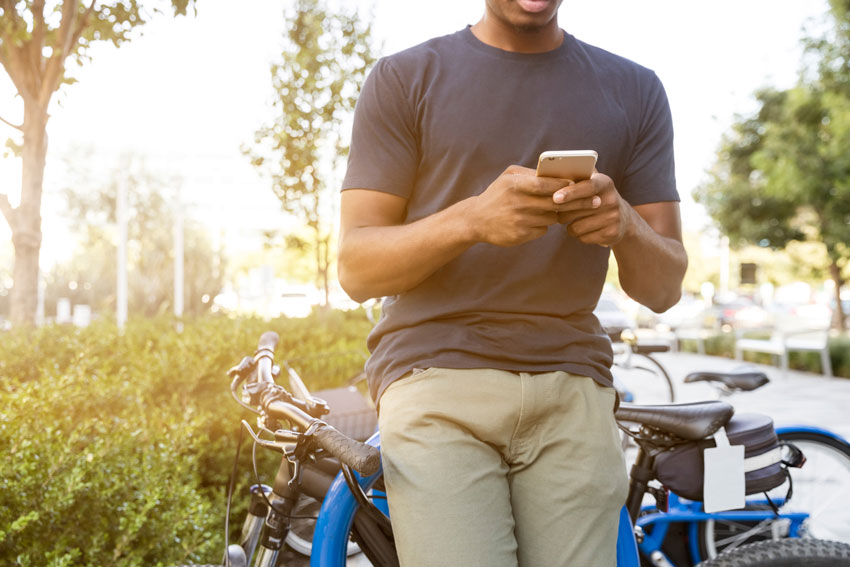
It’s not just dating apps. The internet has allowed us to curate our virtual world. If we don’t like someone, their politics, or simply get tired of them we can unfollow, block, and remove them from our world. Sadly, that functionality does not exist in the real world so we do have to resolve conflicts, manage our feelings, and focus on the ramifications of our behavior.
How often have we flown into a rage over something online? It seems perfectly permissible in our culture to forget that the other person is human and blast them with the sum of all of your feelings of anger or resentment. Similarly, I had a similar interaction at a club. I saw one guy yelling at another guy. Me, emboldened by the discomfort of having someone yell on Sunday Funday, walked over. “You need to check your boy over there.” I calmly pointed out, “He’s not my boy – he’s just another gay man at a gay bar, and you are the one yelling really loud while we are all having fun.”
The man hadn’t realized his rage. I leaned in and talked to him for a little bit. And I punctuated our exchange with, “Let’s be real – you were in a stranger’s face about to get physical with him. This was not about him. And that’s not who you are mad at.” On the Internet, we get to blast each other when we are “triggered.” We can have a rage blackout say something problematic and then onto greener pastures. But in real life that’s not the case.
Our Mediums
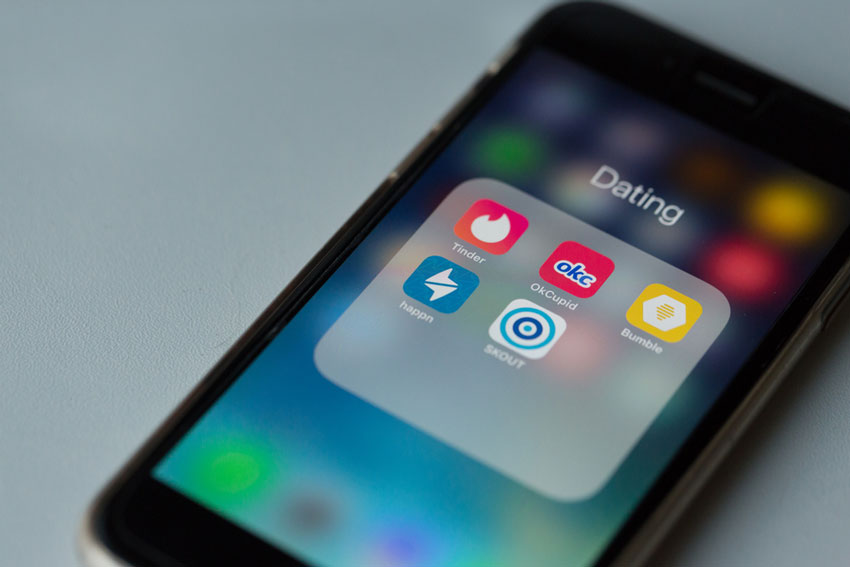
Instagram is where we flaunt what we love. Facebook is where we bitch about what’s wrong in our lives and remember people’s birthdays. Twitter is where we blast our politics and lurk for nudes now that Tumblr’s gone G-rated. Grindr is where we seek out sexual validation. Scruff is where we seek out sex partners. And Tinder is where we seek out dates. All neat little compartments. But does that limit us from being full-fledged, well-rounded homosexuals?
We have to learn how to interact with others, not at the expense of our self-expression and integrity, but out of sheer compassion and diplomacy. Whether it’s blindly soliciting sex or turning a mild misunderstanding into a dramatic Dynasty-style battle of words, our interactions are devolving. We’re at an important point where we need to do the emotional work and conquer our fears and learn how to interact without apps. And, unfortunately for a large portion of our potential dating pool who have been hurt or damaged along their journey, this means being vulnerable and risk rejection. I supposed there is one alternative – we could defer and look forward to the days when our most meaningful conversations will be with AI and Russian hackers.
For whatever reason, our combined queerness is not (and should not necessarily be) an instant conversation topic. It doesn’t automatically make us friends, and can sometimes even put us in adversarial relationships with each other. But that’s a pity considering that in an alternate universe somewhere, little gay boys are playing with action figures together, gay high-schoolers are sitting around a lunch table gossiping about boys, and grown adult men are having adult conversations with other gay men with all the vulnerabilities exposed and out in the open.
Christian Cintron is a writer, actor, and stand-up comedian. He has written about entertainment and gay culture for Edge Publications, Queerty and DNA Magazine. He’s also a regular contributor to Backstage.com.
Check out his website www.christiancintron.com. // YouTube: CintronicComedy // Twitter: AbsoluteCintron // Instagram: @SighKickScream
